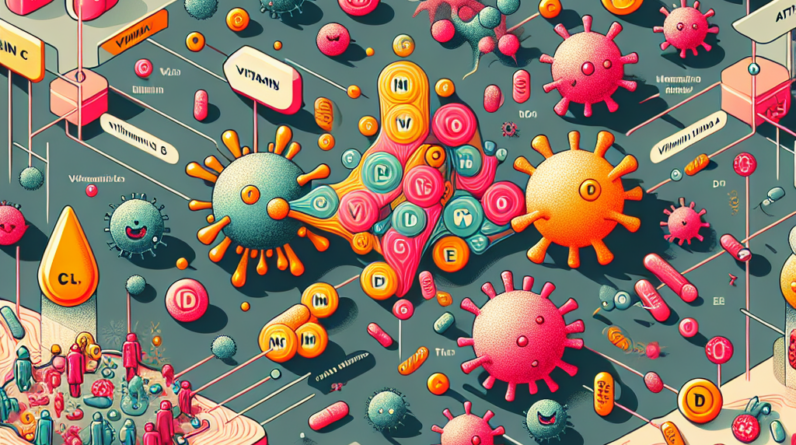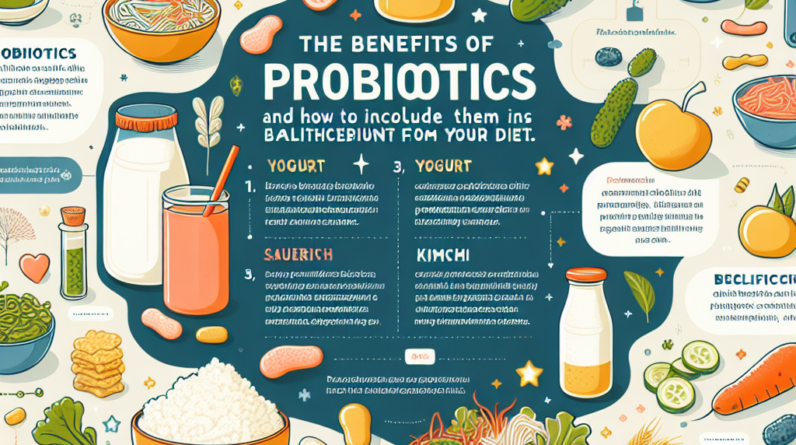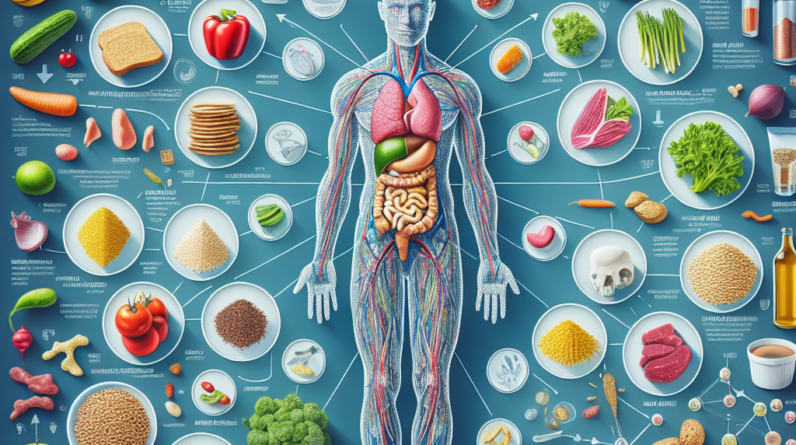
Understanding Gut Microbiome
What is the Gut Microbiome?
Let’s start with the basics. The gut microbiome refers to the collection of trillions of microorganisms living in our digestive tract. These include bacteria, fungi, and viruses, working together to help us digest food and maintain our overall health. It’s kind of like a bustling city of tiny creatures doing their jobs.
Get a Huge Discount and Bonus! Try for 90 Days Risk Free
I remember when I first learned about this little ecosystem. It blew my mind! It’s not just about digestion; these microbes play a significant role in our immune system, nutrient absorption, and even hormone production. Imagine that a happy gut can lead to a happy you!
But here’s the kicker: the balance of these microorganisms can be easily disrupted by factors such as poor diet, stress, and medications. And when that balance tips, it can lead to a host of issues beyond just tummy troubles.
How the Microbiome Affects Mood
Research has shown that our gut health can have a big impact on our mental well-being. It turns out that the gut and brain communicate through something called the gut-brain axis. It’s like they’re gossiping about us! When the gut is happy, it sends signals to the brain that can boost our mood and reduce stress.
For me, this realization was grounding. I had struggled with anxiety, and after learning about the gut-brain connection, I began to focus more on my diet. I started incorporating more fermented foods and probiotics, and it felt like the fog was starting to lift.
Keeping our gut microbiome balanced can lead to increased production of neurotransmitters like serotonin, which is often called the “feel-good hormone.” So, our little gut buddies directly influence how we feel!
Maintaining a Healthy Gut
Now that we know how vital the microbiome is, maintaining gut health should be a priority, right? One of the best things we can do is have a diverse diet rich in fiber, prebiotics, and probiotics. Think fruits, veggies, whole grains, and fermented foods.
When I made the effort to change my eating habits, I noticed significant improvements in my energy levels and overall mood. It was like my body was thanking me! Personally, I love adding kefir and sauerkraut to my meals—it adds flavor and keeps my gut happy.
And let’s not forget hydration! Drinking plenty of water helps maintain a healthy gut lining and supports digestion. My grandma always said, “Drink your water, darling!” And she was right.
Get a Huge Discount and Bonus! Try for 90 Days Risk Free
The Role of Stress in Gut Health
How Stress Impacts the Gut
Stress is like that uninvited guest that shows up at your party and makes everything awkward. When we experience stress, our body produces hormones that can upset the gut’s balance. I’ve definitely felt this firsthand—when I’m stressed, my stomach acts up like it’s throwing a tantrum.
High levels of stress can lead to gastrointestinal disorders, exacerbating issues like IBS or GERD. I used to think it was just my diet, but after digging deeper, I realized stress was a huge contributor. Stress management is crucial for maintaining not just our mental wellness, but our gut health, too.
In my journey to learn about mental wellness, I discovered mindfulness and meditation as effective stress reduction techniques. They don’t just calm the mind—they can also bring harmony to the gut!
Practicing Mindfulness and Relaxation
Incorporating mindfulness practices into my daily routine has been a game-changer. Simple activities like deep breathing, yoga, or even just taking a moment to appreciate nature can make a big difference in how we handle stress. I try to dedicate at least a few minutes a day to these practices; it’s become a ritual for me!
Need a Serious Energy BOOST? Huge Discount Try for 90 Days Risk Free
By learning to relax, we can significantly reduce the adverse effects of stress on our gut. It’s like sending a big hug to our microbiome and letting it know that everything’s going to be okay.
And it’s not just about feeling good mentally; it turns out that reducing stress has a positive feedback loop for our gut health. Healthy gut, relaxed mind—it’s a beautiful cycle.
Finding Balance in Life
Let’s face it, life can sometimes feel chaotic. Finding balance isn’t just about physical health; it’s about emotional and mental well-being too. Prioritizing time for ourselves, engaging in hobbies, and maintaining social connections can massively impact our stress levels and, by extension, our gut health.
One thing I’ve found helpful is keeping a journal—writing down my thoughts helps me process emotions and reduces my stress. It also reminds me to celebrate the small wins each day.
Balancing work, relationships, and self-care might seem tough, but it’s essential for overall wellness. Trust me, your gut will thank you for it!
Dietary Choices and Their Impact on Mental Health
Foods That Heal
When I realized how much my food choices can influence my mental state, I knew I had to make changes. Foods rich in omega-3 fatty acids, such as salmon and walnuts, have been linked to improved mood. I started incorporating more of these into my meals, and the results were fantastic!
Additionally, antioxidants found in fruits and veggies can also combat inflammation, which is crucial for both mental and physical health. Whenever I feel a bit down, I prepare a colorful salad bursting with vibrant veggies and fruits—it’s like a mood booster in a bowl!
Also, let’s not forget the importance of fiber. A fiber-rich diet supports a healthy gut which in turn supports mental wellness. So, loads of whole grains it is!
Good Health Solution is Easier Than Most People Think!
Take a Look for Yourself!
Avoiding Moodswings with Proper Nutrition
On the flip side, certain foods can diminish our mental wellness. Processed foods high in sugar and unhealthy fats can lead to spikes and crashes in blood sugar, affecting our mood. I’ve had my fair share of late-night junk food binges, only to wake up feeling groggy and irritable.
And caffeine is another tricky one. It can initially boost your energy levels, but too much can lead to anxiety and jitters. Moderation is key! I’m learning to enjoy my cup of coffee in moderation and pairing it with a healthy breakfast instead of a sugary pastry.
In my experience, maintaining steady energy levels throughout the day through balanced meals has kept my mood consistent. It’s pretty liberating to feel in control!
The Importance of Hydration
I can’t stress this enough—hydration matters! Our body is made up of around 60% water, and adequate hydration directly affects our energy levels, cognitive function, and mood. When I feel sluggish, oftentimes, it’s just a sign I need to drink more water.
Plus, keeping hydrated helps maintain a healthy digestive system. I’ve found that carrying a water bottle with me helps remind me to drink more throughout the day. Pro tip: infuse your water with fruits or herbs for added flavor!
We often overlook hydration in our wellness journey, but it’s another powerful tool. So let’s keep that water flowing for calmer, happier minds!
Future Research and Understanding
The Evolving Science of Gut Health
As I dove deeper into this topic, what amazed me is that research surrounding gut health and mental wellness is evolving every day. Scientists are uncovering new links between our microbiome and various mental health disorders, and it’s fascinating to see where it leads.
I think we’re just scratching the surface, and it’s exciting to consider that proper gut health could become a crucial part of treating mental health conditions in the future. How cool would it be if doctors prescribed probiotics alongside therapy?
It makes you wonder how our understanding of health care will evolve as more studies come to light. We may soon see a more integrative approach that considers the gut’s health as integral to tackling mental health challenges.
Community Awareness and Support
Another thing that’s become evident to me is the importance of community support. Discussing gut health and mental wellness shouldn’t be taboo. The more we talk about it, the more we can help each other. I’ve found that support groups and online communities can be beneficial places for sharing experiences and tips!
By raising awareness and encouraging open conversation, we can demystify the connection between gut health and mental wellness. After all, we’re all in this together!
Finding companionship in our journeys can be uplifting and provides accountability, helping us commit to healthier choices.
Looking Ahead: Personal Responsibility
Ultimately, taking charge of our health is empowering. Each little change we make can contribute to better gut health and, consequently, improved mental wellness. I’ve learned that it’s truly the small, consistent efforts that add up over time.
Whether it’s being mindful of what I eat, taking time to meditate, or staying hydrated, I remind myself that these actions can lead to a happier, healthier life—not just for me but for those around me.
As I look to the future, I’m excited to keep exploring the connection between gut health and mental wellness. Let’s embrace this knowledge, support each other, and work towards a healthier, happier world, one gut at a time!
FAQ
1. What is the connection between gut health and mental wellness?
The gut and brain communicate through the gut-brain axis, and a healthy microbiome can positively influence mood and mental health by producing beneficial compounds like neurotransmitters.
2. How can stress affect my gut health?
Stress can disrupt the balance of gut microorganisms, leading to gastrointestinal issues and impacting overall mental wellness. Managing stress is crucial for maintaining gut health.
3. What dietary choices support good gut health?
A diverse diet rich in fiber, prebiotics, and probiotics, along with hydration, supports gut health. Including foods like fruits, veggies, whole grains, and fermented foods can be very beneficial.
4. How can I reduce stress to help my gut health?
Practicing mindfulness through techniques like meditation, yoga, and journaling can help reduce stress, which in turn supports gut health. Finding balance in life can also make a significant difference.
5. Is there ongoing research on gut health and mental wellness?
Yes! Research is continually evolving, uncovering new links between gut health and mental wellness. Scientists are exploring how improving gut health can play a role in treating mental health disorders.








